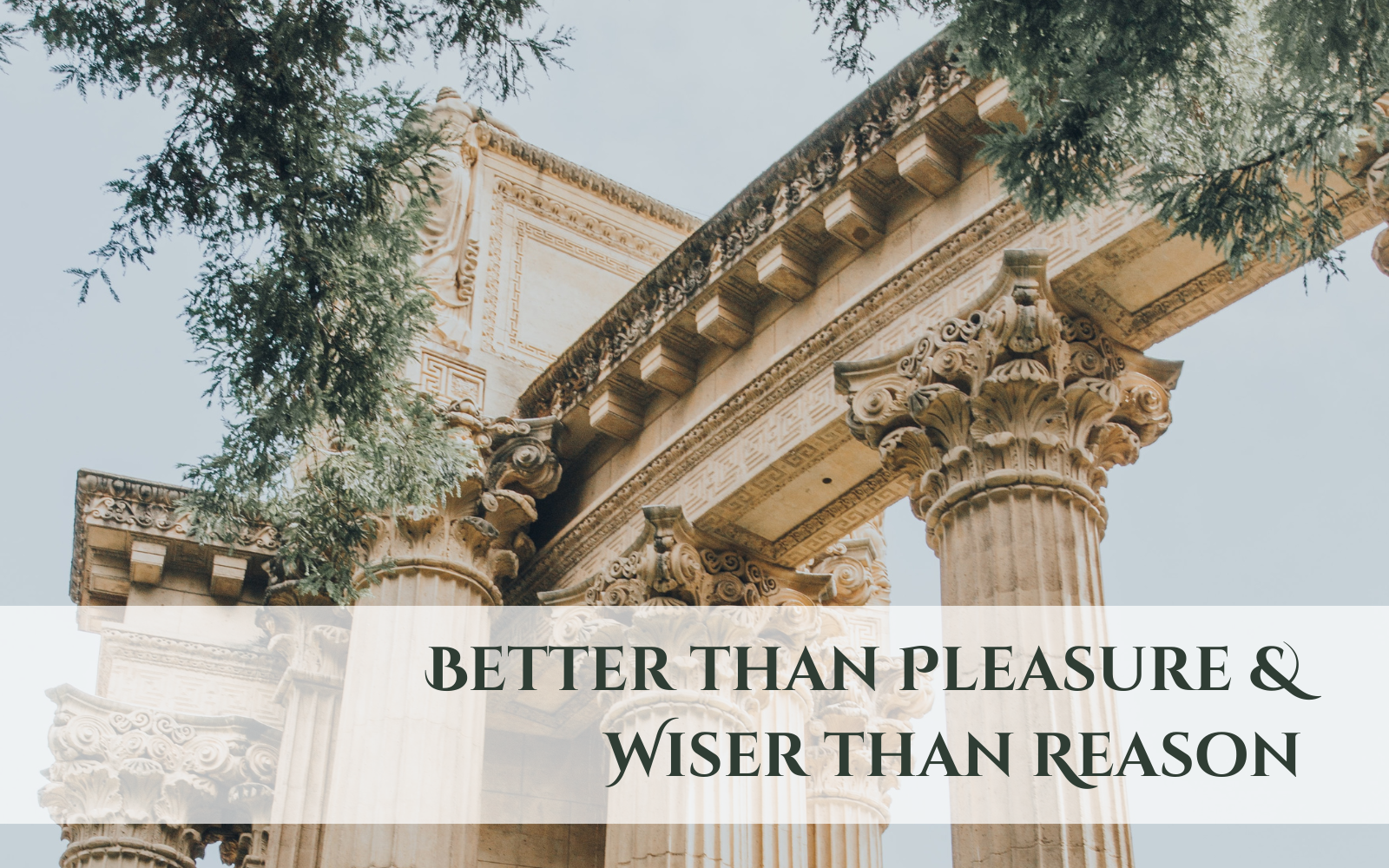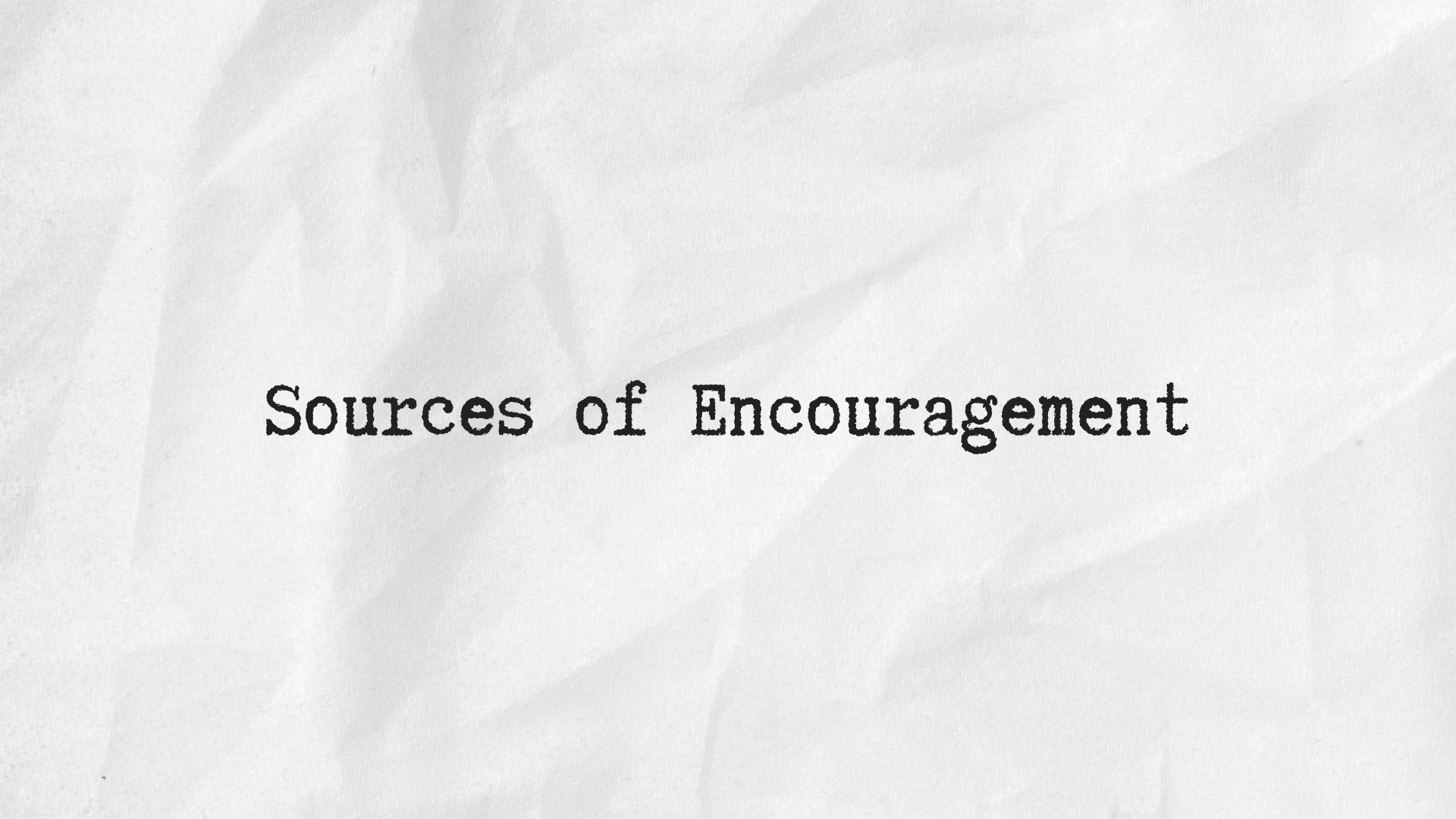The First Law of Encouragement
The First Law of Encouragment
"An object in motion will stay in motion unless acted upon by an external force. An object at rest will stay at rest unless acted upon by an external force." – Newton’s First Law of Motion
Encouragement – ‘parakaleo’ in Greek – is a compound word with a dynamic range of meaning.
‘Para’ means to come alongside, beside, or to be with someone. There is a sense of proximity, nearness, or even relationship involved. Think paramedic, parachute, parallel; these are all things that come alongside something else.
‘Kaleo’ means to call out with an expectation of response. ‘Kaleo’ isn’t simply the communication of information, but communication that summons, charges, compels. Imagine a parent calling out, “Dinner!” from the kitchen and you know exactly what ‘kaleo’ is getting at. “Dinner!” doesn’t simply express the information that dinner is ready, but a calling out that contains within it the expectation the family should respond by coming to the table ready to eat.
Built into the biblical vision of ‘encouragement’ is a coming together and a call to action. When we encourage one another, a dynamic interplay of relationship and responsive responsibility begins taking shape.
But as I’ve reflected on the many dynamics contained within this one word, I realized that a great metaphor for what God aims to do in us through encouragement is Newton’s First Law of Motion. It states, “An object in motion will stay in motion unless acted upon by an external force. An object at rest will stay at rest unless acted upon by an external force.”
In other words, objects will maintain their status quo until something else, something outside of it, intervenes or impacts upon it. We call this tendency for objects to remain as they are until acted upon externally, inertia.
We human beings are not immune to this. Like everything else in the universe, we gravitate towards inertia – to maintaining the status quo – until something or someone – interrupts that status from the outside.
This is where encouragement becomes so powerful and important.
We might think of encouragement as an external force intended to interrupt the inertia of our lives.
Sometimes we get stuck. We get stuck in the past, stuck in unforgiveness, stuck in anger, bitterness, or fear. How do we get moving again? How can we regain forward motion? By the outside force of encouragement.
Sometimes we’re headed the wrong direction. We make bad choices. We get caught up in addiction. We lose sight of who we are and why we are. Past hurt, bitterness, anger, or fears of what might be cause us to live in a way that is unhealthy, ungodly, and unwise. How can we get back on track? How can this unholy motion be redirected? Once again, by the external force of encouragement.
At other times, we’re heading in the right direction, but this forward motion can be hard to maintain because of the “friction” of life. It’s hard to keep moving forward and everything in us wants to quit. Uncertainty overwhelms us and fear starts to trip us up. How do we keep that forward progress? How do we find that extra drive to keep moving? Once more, by this eternal energy we call encouragement.
To borrow Newton’s imagery, we might say that the First Law of Encouragement is this:
“An object (person) in motion (moving in some direction) will stay in motion (moving in some direction) unless acted upon by an external force (encouragement). An object (person) at rest (stuck) will stay at rest (stuck) unless acted upon by an external force.”
Encouragement is an external force provided by God to be shared amongst His people so that when we’re stuck, we might be moved, when we’re on the wrong path we might be redirected, and when we’re headed the right way but losing steam, we might be sustained for the journey ahead.
Yes, encouragement has the power to do all that.
So, how might this first law of encouragement help us become people who “encourage one another daily”? By thinking of encouragement as the external force in Newton’s first law of motion, it gives us something specific to look for.
Does someone appear stuck? Encourage them.
Does someone appear misguided? Encourage them.
Does someone appear to be losing momentum? Encourage them.
What makes encouragement so powerful is that while there are times when correction and/or discipline are necessary (and should be encouraging as well), encouragement isn't necessarily correction as much as it's a loving push designed to disrupt whatever unhealthy inertia might be misaligning our lives away from God's good purposes.
By paying attention to where we or others appear stuck, misguided, or losing momentum, it can help us to encourage one another in our shared lives in Christ for the glory of God and the sake of the world.
So, where do we find these sources of encouragement that can help us when we’re stuck, misguided, or losing momentum? We’ll hear more on this later this week, so stay tuned for part II.
In the meantime, take some time to reflect back to the Four Encouragement Roles we discussed on Sunday. The more familiar we are with our encouragement style, the more effective we can be in it and the more aware we can be of familiarizing ourselves with the other postures.





Sunday Morning Service Times:
9:00 AM Traditional
10:30 AM Contemporary
About:
Here at Deer Lake, we want to be the church IN the Community, FOR the Community to the glory of God and for the sake of the world.








